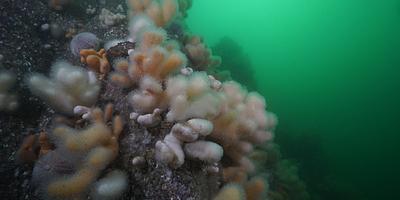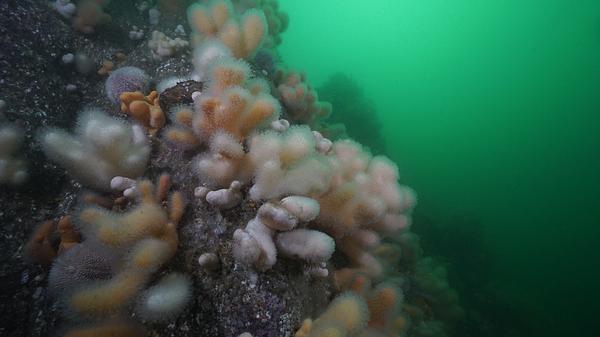
Health of the Marine Environment
The UK’s marine area covers nearly 880,000 km2. Scotland’s seas, from our shallow inter-tidal waters to the open oceans which are thousands of feet deep, make up 61% of the UK marine area. Within our seas, the warm waters from the south mix with cold waters from the arctic and this creates an environment with an amazing diversity of wildlife. Important marine habitats such as cold-water coral, kelp forests and flame shell beds exist and over 6,500 species of plants and animals have been recorded. With new explorations, especially of our deeper waters, there are likely to be new scientific discoveries in the years ahead.
Our rugged and indented coastline also supports a wide variety of different habitats. These include steep sided coastal cliffs, maritime heath, rocky shorelines, sandy dunes and beaches, mudflats and saltmarshes. Scotland also has a unique flower-rich dune grassland, known as ‘machair’, which is restricted to the North-west of Scotland and Ireland. Our islands and coastal cliffs are host to spectacular and internationally important populations of seabirds, around a third of Europe’s breeding seabirds.

State of the marine environment
Comprehensive surveys of our marine environment, partly due to the difficulties and costs involved and a lack of awareness of the pressures that were faced, did not take place until relatively recent times. The first comprehensive survey of marine benthic (in the seabed) habitats around the coastline was captured between 1987 and 1998 through the Marine Nature Conservation Review (MNCR). The most recent compilations and assessments of the status of Scotland’s seas is set out in the Marine Assessment 2020 led by Marine Scotland. The assessment fulfils part of the Marine (Scotland) Act 2010 which requires an assessment to be undertaken taken to inform the development and review of the National Marine Plan.
The United Kingdom Marine Climate Change Impacts Partnership (MCCIP) is a collaboration between scientists, Government and NGOs that collates and synthesises evidence, and co-ordinates advice, on climate change impacts and adaptation around our coast and seas. MCCIP produce a series of report cards that present the latest findings on climate change impacts - the most recent being the Report Card 2020.
